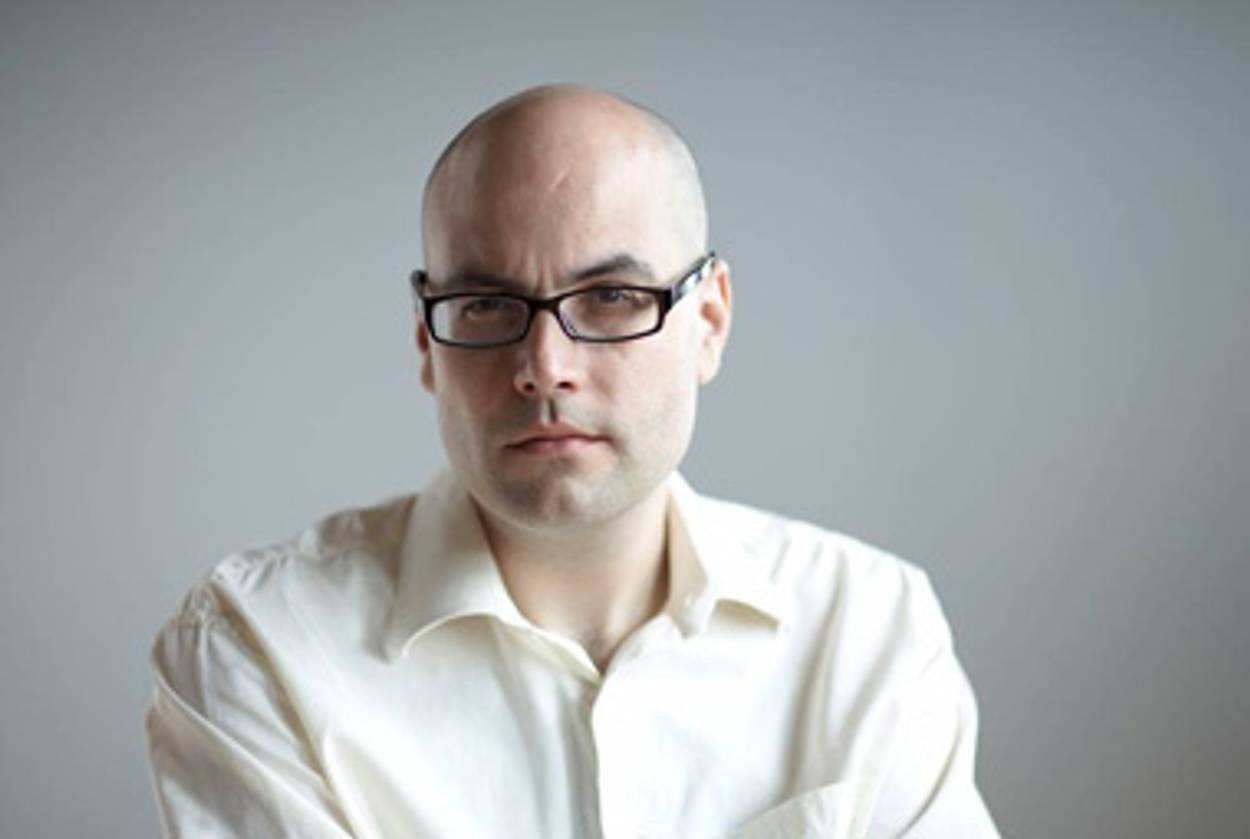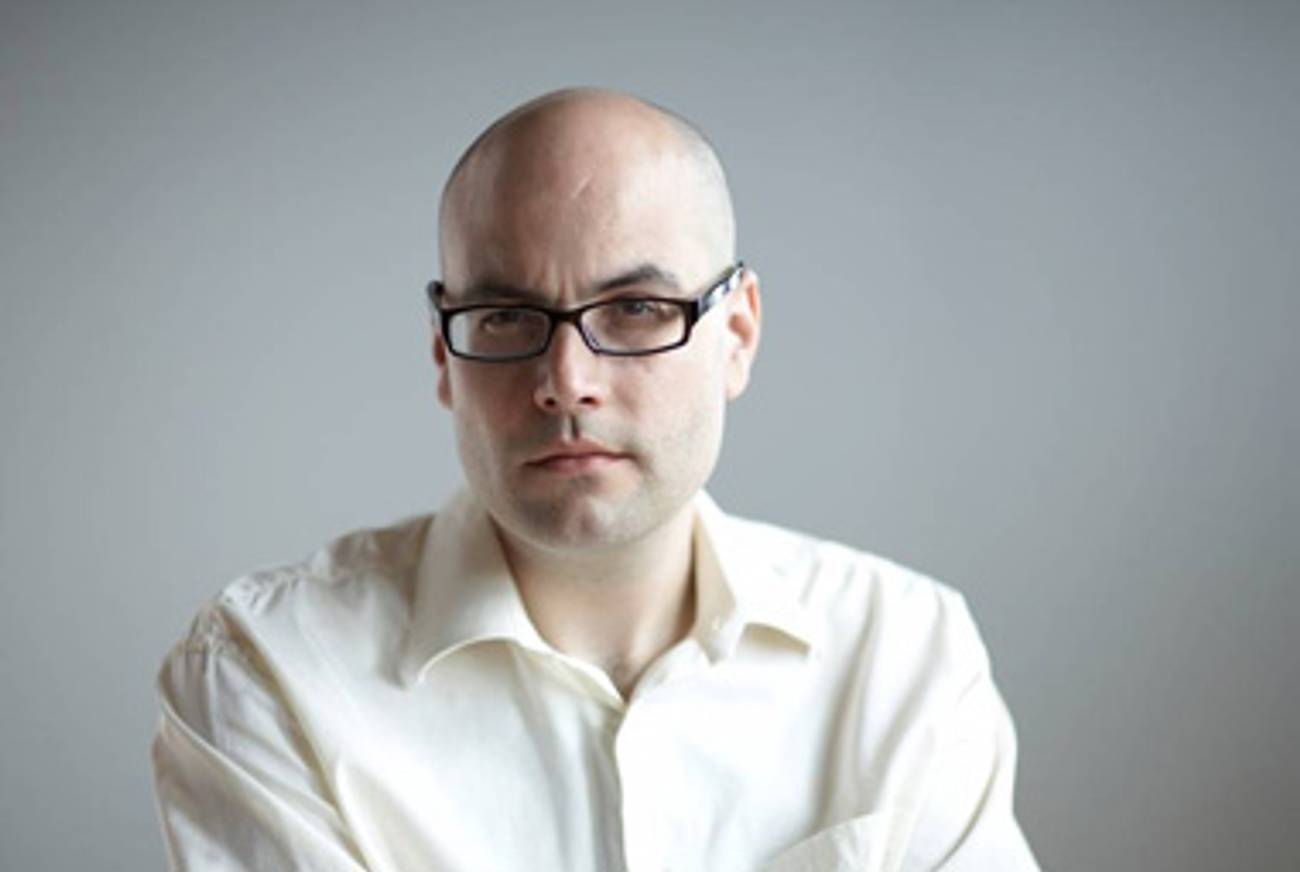Peeling Back Layers
Pop culture critic Nathan Rabin illuminates his tumultuous adolescence in a new memoir




As the head writer at the A.V. Club, the entertainment-oriented sister publication to The Onion (for which he is also a former writer), Nathan Rabin, 33, has become a counter-cultural icon for people who, as he describes, “filter everything through the lens of pop culture.” His funny, emotional memoir, The Big Rewind, out today from Scribner, may surprise fans who’ve come to love the man behind features like “My Year of Flops,” a series examining under-loved movies, through which, Rabin says, he’s been performing a confessional “strip tease,” culminating in this new book. His fixation on underdogs is well earned—Rabin’s mother abandoned his family when he was two years old, leaving him and an older sister with his father, who suffers from multiple sclerosis and was often unemployed. At 14, a half-hearted suicide attempt put Rabin in a mental institution, followed by a brief stint in the care of wealthy but unsympathetic Jewish foster parents, and finally four years at Winchester House, a group home for troubled adolescent boys run by Chicago’s Jewish Children’s Bureau.
You talk about community and family being part of what you inherited from Judaism. Do you think you got some of that from the group home?
Definitely, a lot of it is this community of outsiders, people who have nowhere else to go who make this home together. But I could never really admit to myself that “I’m in a group home for disturbed adolescents because I’ve run out of options.“ Instead I would think, “It’s a cosmic fluke that I’m here. I’m this smart, middle class guy who’s going through some things and suddenly I’m sharing a room with a bed-wetter with an 80 IQ.”
We lived next door to this old Jewish guy, always chomping on a cigar and watering his yard in his underwear. He used to say to neighbors, “You need to do a better job cleaning up your trash or you’ll get rats, and I’m not talking about the two-legged kind that live in that group home.” We got the idea that you were living there because there was something fundamentally wrong with you. That was hard, and I wish I’d taken more comfort in the fact that other people were going through the same thing. But on the other hand, holding myself apart and living inside my mind was a way in which I developed my voice, and my pathological obsession with popular culture.
Your personal experience defies the stereotype that Jews are over-privileged. Do you ever feel like an outsider in the Jewish world?
My dad likes to joke that he’s the only broke Jew. But I feel like in a strange sort of way, I’m going through what a lot of Jews went through in the early 1900s, where you grow up with not that much, but you’re smart, resourceful, you take advantage of every opportunity, and you can do better than your parents did.
You describe moving in with your foster parents and having a Gatsby-esque desire to reinvent yourself. You wanted to change your name to “Nathan Rockwell.”
That’s a nice way of saying raging self-hatred. Gatsby obviously had a lot of hatred and felt this very Jewish-American impulse, that “I can be whatever I want to be, I just need to work hard.” I idolized my father. He was this sort of angelic figure, but when everything fell apart during adolescence, I felt betrayed by my father, so I think I was sort of rebelling, feeling like I had no roots and that my name and my Jewish identity were part of what had been pulled out from under me. It was a slow process, but I got to a point in my life where I realized, “No, I’m proud of my heritage, I’m proud of being a Jew, I’m proud of everything that I’ve come through.”
In the book, you discuss certain negative traits—sexual repression, the inability to experience pleasure—as part of being Jewish. Do you still see them that way?
Judaism is not monolithic. My mother was a half-assed convert—it’s weird to think of what my life and personality would have looked like if I had been raised by her, if I would feel all these Jewish neuroses. The positive and the negative are inextricably wrapped up in each other. Woody Allen and Philip Roth are both synonymous with sexual repression and neuroses, but they’re also arguably the most acclaimed novelist and filmmaker in the world. They managed to take these ambiguously negative qualities and make something great.
When you were 22 you went to visit your mother and your half-siblings and found them “egregiously non-Jewish.” It was as if, you write, you’d “stumbled into the Valley of the Super-Goys.” How so?
Growing up I never really had any idea that my mother wasn’t born Jewish. When I was five years old I had an orthodox conversion, but at five years old you don’t really pay attention to things. My dad’s second wife was very Jewish, and she instilled in us that there were all these things that were just patently not Jewish, and one of those things was Jell-o. The first thing my mother did when she saw me was she presented me with this Jell-o mold. And I remember thinking she may as well have just given me a crucifix.
You have a lovely passage in the book where you talk about how you feel culturally Jewish and list all your influences, from Malcolm McLaren to Jon Stewart. What characterizes the Jewishness of those figures?
Humor as survival. I went through an internal debate [about that section] where part of me wanted to elucidate my concept of Judaism, how I can never go to synagogue, but if somebody says I’m not Jewish—those are fighting words. So I tried to create this kind of overarching mural of cultural Judaism through the years, but I remember thinking that it was kind of self-indulgent, that I was aligning myself with every Jew who has ever accomplished anything ever—Stanley Kubrick, and Peter Sellers, and Kafka, and Freud, and Marx—the opposite of guilt by association. Glory by association.
Hadara Graubart was formerly a writer and editor for Tablet Magazine.
Hadara Graubart was formerly a writer and editor for Tablet Magazine.